Understanding Real Estate Terminology: A Comprehensive Guide for Nigerians
Navigating Nigeria’s real estate market can be complex, especially with its specialized jargon. Whether you’re buying your first home, selling a property, or just looking to understand more about the Nigerian real estate landscape, a solid grasp of key terms is essential. This guide will break down important real estate terminology, including specific Nigerian terms, helping you make informed decisions and communicate effectively with professionals in the industry.
1. Appraisal
An appraisal is an expert evaluation of a property’s value conducted by a licensed appraiser. In Nigeria, this process is crucial when buying or selling a property, securing a mortgage, or determining property taxes. The appraiser assesses factors such as the property’s condition, location, and recent sales of similar properties to determine its fair market value.
2. Closing Costs
Closing costs are fees associated with finalizing a real estate transaction. In Nigeria, these costs may include legal fees, stamp duty, registration fees, and sometimes agent commissions. They generally range from 2% to 5% of the property’s purchase price. Knowing these costs beforehand helps you budget accurately and avoid unexpected expenses.
3. Contingency
A contingency is a condition that must be met for a real estate contract to become binding. Common contingencies in Nigeria include home inspections, financing, and legal verification. For instance, a financing contingency allows a buyer to withdraw if they cannot secure a mortgage. Contingencies protect both parties and ensure that certain conditions are met before finalizing the transaction.
4. Down Payment
The down payment is the initial amount of money paid toward purchasing a property, expressed as a percentage of the total price. In Nigeria, the typical down payment ranges from 10% to 30% of the property’s price. For example, a 20% down payment on a ₦20 million home would be ₦4 million. A larger down payment can reduce the loan amount and potentially avoid additional costs like mortgage insurance.
5. Escrow
Escrow involves a neutral third party holding funds and documents during a real estate transaction. In Nigeria, escrow services ensure that both the buyer and seller meet their contractual obligations before the transaction is completed. For instance, the buyer’s earnest money is held in escrow until closing, ensuring it is applied to the purchase or refunded if the deal does not proceed.
6. Equity
Equity represents the difference between a property’s market value and the amount still owed on any mortgages or loans. For example, if a property is valued at ₦30 million and there’s a mortgage balance of ₦15 million, the homeowner has ₦15 million in equity. Building equity can provide financial benefits, such as accessing home equity loans or realizing a profit upon sale.
7. Home Inspection
A home inspection involves a detailed examination of a property’s condition by a professional inspector. In Nigeria, home inspections typically cover major systems like plumbing, electrical wiring, roofing, and structural integrity. An inspection helps identify potential issues or necessary repairs before finalizing the purchase. An inspection contingency allows buyers to negotiate repairs or reconsider their offer based on the findings.
8. Listing
A listing refers to a property available for sale. Listings in Nigeria are often advertised through real estate agents, property websites, and sometimes social media. A listing provides essential details about the property, including its price, features, and location. Understanding listing details helps buyers compare options and make informed decisions.
9. Mortgage
A mortgage is a loan used specifically to purchase real estate. In Nigeria, mortgages are offered by banks and financial institutions, with terms typically ranging from 15 to 30 years. Mortgages can be fixed-rate, where the interest rate remains constant, or variable-rate, where the rate may fluctuate based on market conditions. Understanding mortgage terms is crucial for managing your financial commitment.
10. Pre-Approval
Pre-approval is the process where a lender assesses a buyer’s financial status to determine the maximum loan amount they are eligible to borrow. In Nigeria, this involves reviewing credit history, income, and existing debts. Obtaining pre-approval helps buyers understand their budget and strengthens their offer, showing sellers that they are serious and financially capable.
11. Refinancing
Refinancing means replacing an existing mortgage with a new one, often to secure a lower interest rate or better loan terms. In Nigeria, homeowners may refinance to reduce monthly payments, access additional funds, or adjust their loan period. While refinancing can offer financial benefits, it’s important to consider associated costs and the impact on the loan’s overall term.
12. Title
The title is the legal right to own and use a property. In Nigeria, key title documents include the Certificate of Occupancy (C of O) and the Right of Occupancy (R of O). A C of O is the primary document indicating ownership in urban areas, while the R of O is used in non-urban areas. Ensuring clear title is essential for a smooth transaction. Title insurance can protect against issues that might arise from title defects or disputes.
13. Underwriting
Underwriting is the process by which lenders evaluate the risk of issuing a mortgage loan. In Nigeria, underwriters review the borrower’s financial details, including credit score, income, and debts, to determine loan eligibility. Successful underwriting leads to loan approval and ensures that the borrower can meet their repayment obligations.
14. Zoning
Zoning refers to local regulations governing land use and property development. In Nigeria, zoning laws determine how properties can be used, such as for residential, commercial, or industrial purposes. Understanding zoning regulations helps buyers and investors ensure that the property suits their intended use and complies with local guidelines.
15. Letter of Intent (LOI)
A Letter of Intent (LOI) is a preliminary agreement between a buyer and a seller outlining the terms and conditions of a proposed transaction. While not legally binding, an LOI demonstrates the buyer’s serious interest and provides a framework for the final contract. It’s often used to outline key terms before entering into a formal agreement.
16. Land Banking
Land banking involves purchasing land with the expectation that its value will increase over time. Investors buy and hold land as a long-term investment strategy, hoping to profit from future development or appreciation. This strategy is popular in Nigeria due to the growing demand for land in urban and developing areas.
17. To Be Determined (TBD)
“TBD” stands for “To Be Determined” and is used in real estate transactions to indicate that certain details, such as final prices or terms, have not yet been decided. It signals that specific aspects of the deal will be finalized at a later date.
18. Title Deed Plan (TDP)
A Title Deed Plan (TDP) is a document that outlines the legal boundaries and details of a property. In Nigeria, the TDP is crucial for confirming ownership and understanding the exact dimensions and location of a property. It is often required for property transactions and helps prevent disputes over property boundaries.
Conclusion
Understanding real estate terminology is essential for navigating Nigeria’s property market effectively, whether you’re buying, selling, or investing. By familiarizing yourself with these key terms, you can make more informed decisions, communicate clearly with real estate professionals, and avoid common pitfalls. The Nigerian real estate landscape offers numerous opportunities, and a strong grasp of its language will help you achieve your property goals with confidence.

